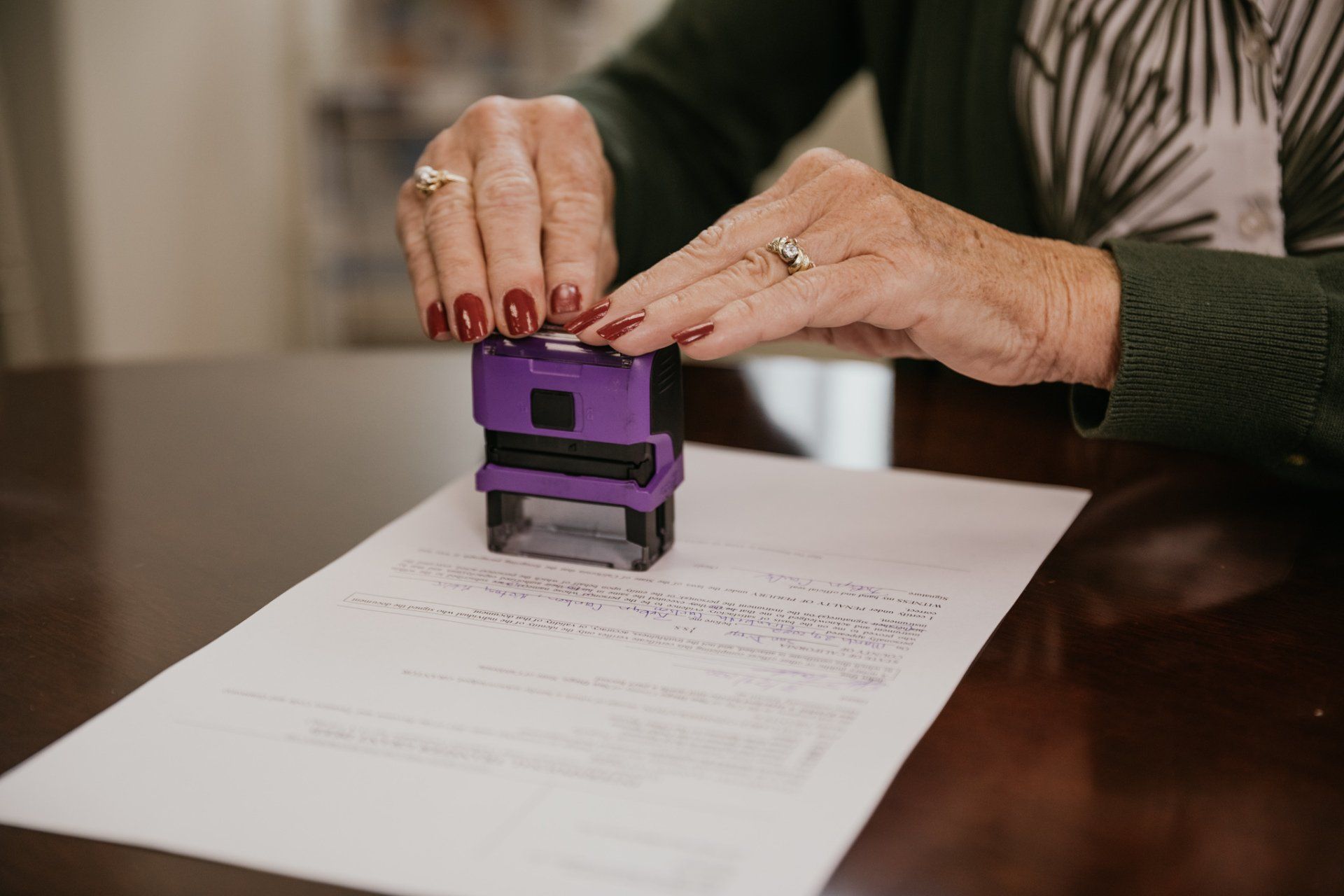Remote Online Notarization (RON) vs. Traditional Notarization: What’s Right for You?
Notarization is a crucial process for verifying the identity of signers and ensuring the authenticity of critical legal documents. As technology advances, notarization has evolved to include digital options that offer greater convenience and accessibility. One of the most significant developments is Remote Online Notarization (RON), which allows signers and notaries to complete notarizations via secure video conference. But is RON the right choice for your needs, or is traditional notarization still the better option?
What Is Traditional Notarization?
Traditional notarization is the in-person process where a notary public physically meets with the signer to verify their identity and witness the signing of documents. The notary reviews identification, ensures the signer understands the document, and then applies their official stamp or seal.
Key Features:
- Face-to-face meeting between the signer and the notary
- Physical documents are signed and stamped
- Often conducted at banks, law offices, or by mobile notaries at your location
What Is Remote Online Notarization (RON)?
Remote Online Notarization enables the entire notarization process to occur online, utilizing audio-visual technology. The signer and notary meet in a virtual session, typically through a secure platform approved by state laws. The signer’s identity is verified using multi-factor authentication and credential analysis before the notary witnesses the electronic signature and applies a digital notarial seal.
Key Features:
- Conducted over the internet using a webcam and a secure platform
- Digital documents are signed and notarized
- Available 24/7 in many cases, offering unmatched flexibility
Pros and Cons of Remote Online Notarization (RON)
Pros:
- Convenient: Complete notarizations from anywhere with internet access
- Time-Saving: No travel or waiting required
- Accessible: Great option for those with mobility issues or tight schedules
- Efficient: Instant delivery of notarized documents via email
Cons:
- Limited Availability: Not legal in all states or accepted for all document types
- Tech Requirements: Requires reliable internet, a webcam, and a compatible device
- Learning Curve: May be unfamiliar or less comfortable for those not used to digital tools
Pros and Cons of Traditional Notarization
Pros:
- Universally Accepted: Recognized across all jurisdictions and widely trusted
- No Tech Barriers: Suitable for individuals without internet or digital devices
- Personal Interaction: Beneficial for complex or sensitive transactions
Cons:
- Less Convenient: Requires scheduling, travel, or waiting in line
- Limited Hours: Usually restricted to business hours unless using a mobile notary
- Slower Delivery: Physical documents must be scanned or mailed after signing
Which One Is Right for You?
Choose RON if:
- You prefer digital convenience and have reliable internet access
- You need to complete a notarization quickly, especially outside business hours
- Your state allows RON, and your document is eligible for electronic notarization
Choose Traditional Notarization if:
- You or the signerise uncomfortable with digital tools
- The document requires a physical signature or is not accepted electronically
- You need to notarize documents in a jurisdiction that does not yet allow RON
Final Thoughts
Remote Online Notarization and traditional notarization each have their place, depending on your needs, location, and comfort with technology. RON offers a modern, flexible alternative that’s ideal for many scenarios, while traditional notarization continues to serve as a reliable and universally accepted method.
Before choosing, check your state’s laws and the requirements of the institution receiving the notarized document. With the right approach, both options provide safe and secure methods for completing critical legal transactions.












